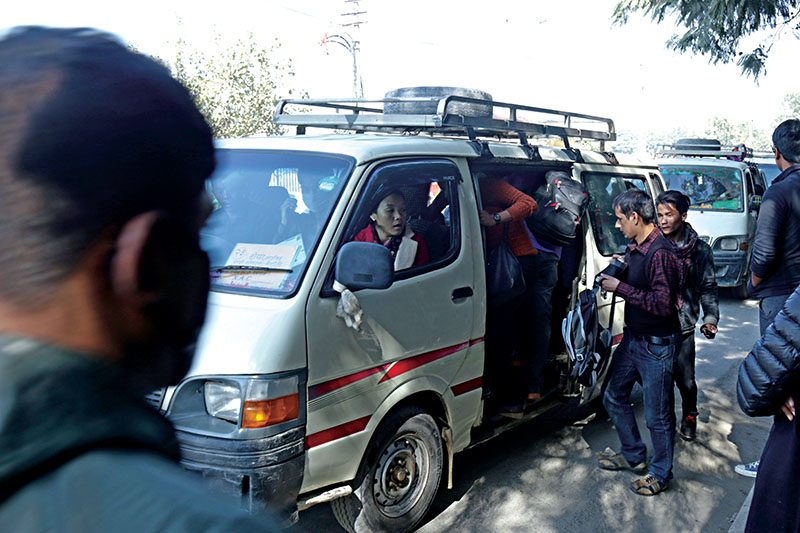Sting operation to discourage sexual harassment on public transport
Kathmandu, August 1
Police, in association with community service centres and transport entrepreneurs, are set to launch sting operation to discourage sexual harassment on public transport from tomorrow.
Metropolitan Police Commissioner DIG Bam Bahadur Bhandari said a three-member team, also comprising a woman cop in civvies or a member of the general public, will conduct a deceptive operation to catch persons groping or making unwanted sexual advances towards female passengers on public transport, mainly buses. This operation has been named ‘Safety Pin Campaign’.
Backed by a special mobile van, police will use a woman as a commuter in a public bus to see how male passengers behave with female. “Anyone found to be sexually harassing female passengers will be arrested outright for legal action under the existing laws,” said DIG Bhandari.
Sting operation teams will be mobilised in busy thoroughfares, including bus parks, of Kathmandu Valley to catch the perpetrators. It will be the first operation of this kind to curb sexual harassment in public buses.
Many women and teenagers using public transport face sexual harassment. But most of the cases go unreported. Public vehicles in the Valley are usually overcrowded, providing the molesters with ample opportunity to sexually harass women.
Tens of thousands of people use public vehicles daily in the Valley. Existing laws define sexual assault as any form of sexual contact or activity like touching, tapping and showing sexually explicit pictures or movies without one’s consent.
According to a 2013 World Bank survey, 26 per cent of female respondents aged between 19 and 35 years said they had experienced some form of sexual harassment on public transport in Nepal. Young women aged 19 to 25 years are more likely to relate to feelings of personal insecurity and fear of ‘inappropriate touching’ in public vehicles, said the report.
The main perpetrators are mostly middle-aged men and more than half of all the women who were surveyed in the World Bank report said they avoided standing or sitting next to a middle-aged man while travelling on a public vehicle. One in three women and one in six men feel insecure on a public vehicle due to fear of pickpockets, sexual harassment and personal injury due to overcrowding and reckless driving.






